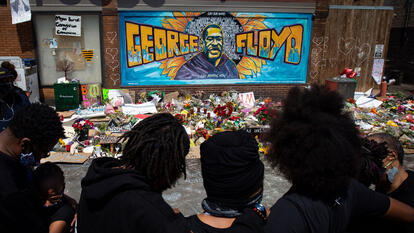Spotlight on Freedom Project Fellow Delaram Farzaneh

Wellesley has become widely known as a leading voice in the quest for gender equity in the United States and around the world. Last month, for example, Wellesley’s Suzy Newhouse Center convened its first international symposium on education and gender equality—a two-day conference that brought together global scholars, intellectuals, activists, and others from business and government.
And since August, Wellesley has hosted Iranian-born scholar Delaram Farzaneh. She is a visiting fellow with the Freedom Project who analyzes and writes about human rights and gender equality in her native country through the lens of its legal system.
Since the 1980s, the numbers of women serving as judges or holding powerful positions in government in Iran have diminished due to laws passed after the 1979 Islamic Revolution, which marked the overthrow of the Pahlavi monarchy and reversed decades of gains for women. At the time of the revolution, there were many women judges throughout the country; afterward, they were dismissed or demoted to lower positions, said Farzaneh. In 1982, Iran legalized gender-based discrimination in the judiciary.
Farzaneh is the author of the 2017 book Judgeships in Iran: Step Down, You Are a Woman: A Legal Analysis of International Human Rights. “I focus on judgeships, because it is key to attaining authority in the judiciary and one of the earliest attacks on women’s rights since the 1979 Islamic revolution,” she said. “This is where lawmakers do not want women to have access to actual power. It cripples women’s ability to have full equality in the decision-making process and access to power in the society.”
Farzaneh received her bachelor’s degree in law from Islamic Azad University in Tehran, and has degrees from California Western School of Law in San Diego and Golden Gate University School of Law in San Francisco.
Farzaneh’s Freedom Project fellowship affords her the opportunity to teach, lecture on human rights and women’s rights, and continue her scholarly work. She said that her ongoing work is important not only because she is a human rights scholar, but also because she is a defender of the human rights of women, and the Islamic Republic is extremely hostile toward defenders of human rights.
Farzaneh is also a scholar with the Scholars at Risk (SAR) Network, a New York-based international organization that supports scholars who would be silenced in their home countries.
In looking to the future, Farzaneh said that although the absence of women in decision-making positions within Iran’s legal system makes it difficult to introduce reforms that would end discrimination, it is not impossible to speak out.
She added, “Bear in mind that women in Iran have always played prominent roles in demands for change and reforms whether it was during the Constitutional Revolution in the early 20th century or overthrowing the Pahlavi monarchy in 1979.”



